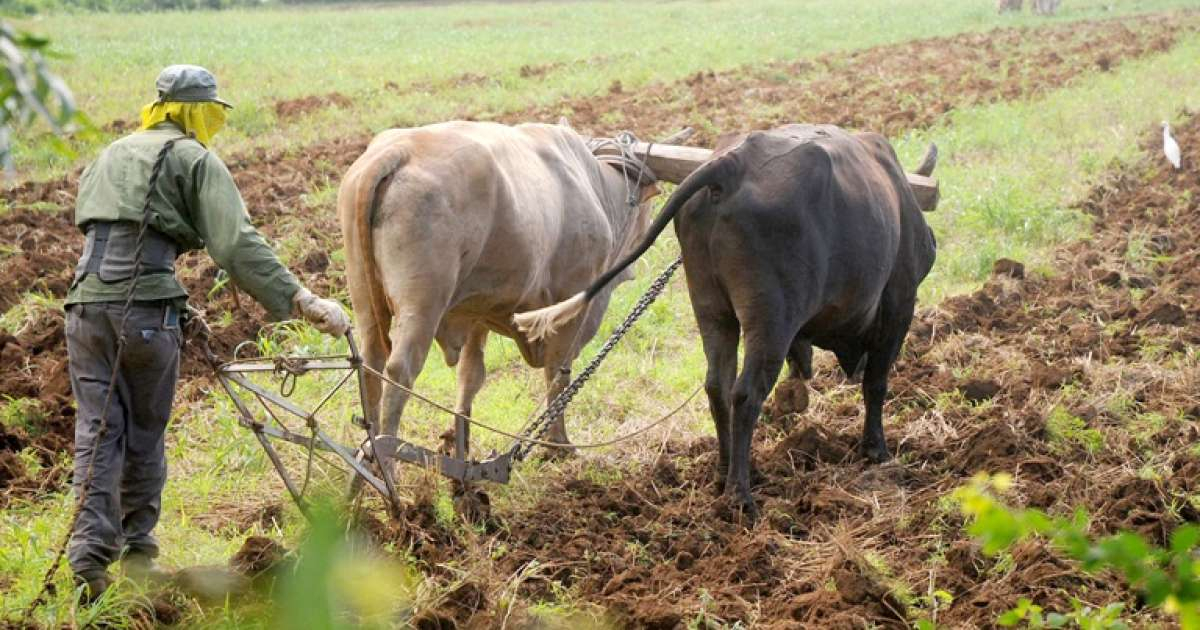
The collapse of the agricultural situation in Cuba is evident in the drop in production in almost all areas, according to official data revealed in the 2022 Cuban Statistical Yearbook.
Economist Pedro Monreal explained in a thread on key foods such as rice, corn, and vegetables.
According to the data, the only sector that experienced growth was bean production, with an increase of 20.04%.
However – Monreal emphasizes in his analysis – this increase responds to the decrease in the state plan, since the figures are only 54% of the production levels recorded in 2019.
The production of root vegetables, a category that covers a variety of products, also showed an increase, mainly driven by the increase in the production of plantain root, taro and onion.
However, widely consumed and high-volume foods, such as rice, corn, vegetables, sweet potatoes, and fruits, experienced significant contractions of more than 16%.
The economist affirms that the situation of rice and corn is critical, with productions that fell abruptly.
Citrus fruits – which at one time were an exportable item – also confirmed their tendency towards "evaporation" that has become evident in recent years.
Monreal highlighted that the agricultural situation in Cuba has deteriorated during the last decade, with the exception of the "food" category.
The expert highlights that the production of seven essential foods is now lower in 2022 compared to the levels recorded ten years ago.
He clarifies that this trend was already evident before the pandemic and the regime's current agricultural policy has not managed to reverse it.
In this situation theCuban regime blames and justifies high prices of food on the island with the United States embargo and the high cost of many products and raw materials in the international market.
Manuel Sobrino, Minister of the Food Industry, recently assured that the US government maintains "obstinate persecution" of all commercial activities carried out by Cuba.
The day before, President Miguel Díaz-Canel blamed the situation on the producers, who, in turn, complain that the authorities do not pay them for their production and spend months without being able to obtain their money to invest in the new harvest.
Several Guantanamo peasantsThey recently reported that they are working without resources, while the state lets the crops lose and takes up to five months to pay them.
"We are working with nothing," they told the news portal.Cubanet, who toured the agricultural areas of the eastern end of the island.
The farm workers explained that they lack the necessary resources and tools to produce and obtain good crops: "we even lack the limes, there is a lime factory in Guantánamo and we don't have any. There are also no fertilizers or hoses," they said. The inputs sold by the state are expensive, they pointed out.
They said that it also affects state inefficiency, because sometimes the state does not receive the crops because its warehouses are full, and they tell you that you have to wait three days, they detailed.
"We planted a tomato and I went to deliver the harvest, what did they tell me: we have too many tomatoes and we can't receive you. Do you think that when you have a ripe tomato plant there it will wait two or three days? It won't wait. What? what to do?: look for resellers outside to take care of the tomato," said one affected person.
The government blames the US embargo for hunger in Cuba, but internal structural problems are what affect farmers the most, they said.
What do you think?
SEE COMMENTS (1)Filed in: